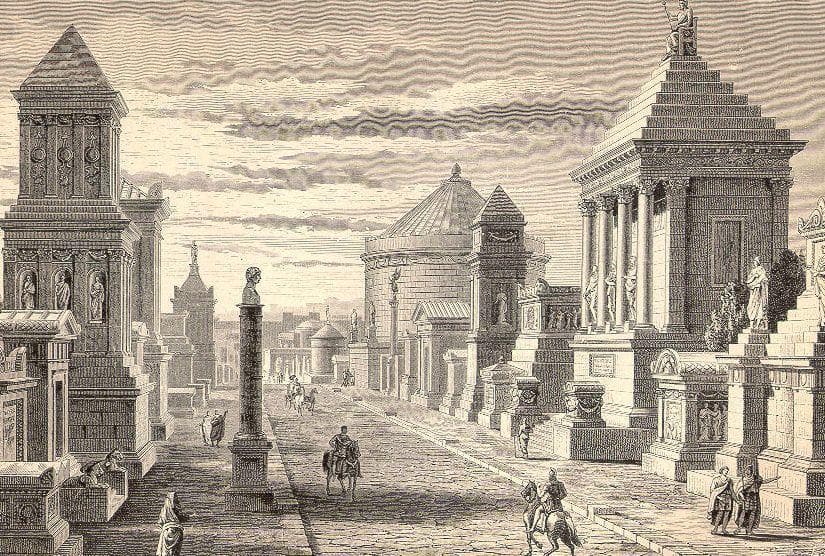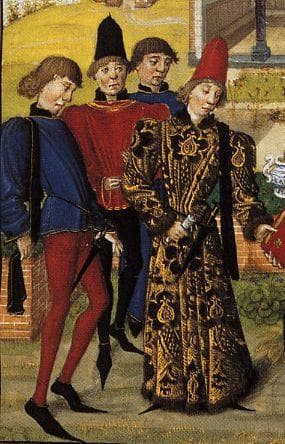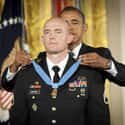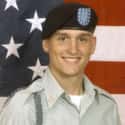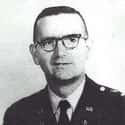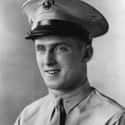(#18) Ty Carter - Crossed an Open Area of Enemy Fire Multiple Times to Help the Wounded
In 2009, Afghanistan experienced its most violent year since the initial US invasion. In October of that year, Combat Outpost (COP) Keating was in the process of being closed and consolidated with other bases. It was simply too isolated to merit continued operations. As a result, COP Keating only had 60 soldiers on hand. On October 3, 2009, those soldiers awoke to a coordinated assault by over three-hundred Taliban fighters. Carter and the others were outnumbered five to one. The battle for COP Keating has been referred to by some as the modern-day Alamo.
COP Keating was positioned in a valley, surrounded by mountains on all four sides. Taliban fighters occupied the high ground in every direction. When the attack broke out, American soldiers were immediately pinned down and cut off from other positions around the base. Concentrated, heavy fire from the enemy quickly destroyed the majority of Keating’s structures and vehicles.
When a forward position ran low on ammo, Ty Carter voluntarily ran 100 yards through a completely exposed gauntlet of enemy fire to resupply them, twice. After the second time, he remained in the isolated position to accurately return fire. After realizing a man was wounded and stranded nearby, Carter ran through the gauntlet again, provided life-extending first aid, and dragged the wounded man to safety.
As the onslaught continued, Carter ran through the hail of enemy fire a fourth time to help a fallen soldier and recover the squad’s radio. Carter then assisted the wounded man through the 100 yards of hell, and got him to a relatively safe position. The radio he recovered allowed for better coordination for counterattack and evacuation efforts.
(#16) Ross McGinnis - Fell on a Grenade Inside a Humvee
As a turret gunner in the wars in Iraq and Afghanistan, your upper body is exposed to the world. At your fingertips is usually either a M2 .50 caliber gun or the Mark 19 automatic grenade launcher. Both are capable of annihilating structures, vehicles, aircraft, and taking numerous lives. But in order to harness that firepower, you have to be out in the open. That’s especially frightening in an environment as hostile and unpredictable as Baghdad in 2006.
Ross McGinnis was manning his Humvee’s M2 while his unit was conducting combat patrols to subdue the locals. On a narrow street, a freedom fighter threw a well-aimed grenade right past McGinnis, through the gunner’s hatch, and into the Humvee. McGinnis instinctively yelled “grenade!” to give his crew even the slightest chance to prepare for the blast. Instead of easily leaping up through the hatch to avoid the explosion, McGinnis dropped inside the Humvee and pinned the grenade between his body and the vehicle.
In the armored shell of a military vehicle, the concussion wave alone would be powerful enough to most likely kill every man inside. However, by pinning the grenade, McGinnis’s body absorbed the majority of the blast, and by giving his life, he directly saved four men from certain serious injury and death.
Ross McGinnis was awarded the Medal of Honor posthumously.
(#19) Daniel Inouye - Led His Platoon Through Enemy Fire Despite Severe Injuries
Lt. Daniel Inouye served in WWII and received the medal of honor "for conspicuous gallantry and intrepidity at risk of his life above and beyond the call of duty" in 1945. In an attempt to seize an enemy ridge in San Terenzo, Italy, he defended his platoon though he suffered major injuries as a result of heroic action. He brought his troops within 40 yards of hostile forces before taking it upon himself to eliminate the defending fire by crawling up a "treacherous slope" and "destroying the emplacement" within five yards of their position.
Second Lt. Inouye neutralized enemy fire and pushed forward though he had been wounded by a sniper and later lost his right arm to a grenade. Despite his injuries, he managed to lead his troops though "formidable resistance" and capture the ridge.
Inouye returned to the states where he was eventually elected into the House of Representatives as a Senator in Hawaii. He became the first Japanese-American Member of Congress in 1959.
(#13) Charles Watters - Crossed Enemy Lines During Battle to Rescue the Wounded
It’s a rare occasion that a US Army Chaplain would be in close proximity to hostile frontlines. The general job description of a Chaplain is to oversee and administer religious ministry to military personnel, and at times provide advice relating to religion, morals, and morale. Chaplains do not carry a weapon.
In Vietnam, in 1967, Major Watters was moving with a company-sized force of the US Army 173rd Airborne Brigade when they encountered, and were vastly outnumbered by, a battalion-sized enemy force. They were quickly overwhelmed and needed to drop back to form a defensive position to regroup.
During the initial chaotic melee, Watters ran to the frontlines to aid wounded soldiers. Completely exposed and with no weapon, Watters helped get wounded soldiers to safety, at one point even carrying a soldier over his shoulders. When the Americans formed a defensive line, Watters realized there were several wounded men trapped between them and the Vietnamese they were attacking.
Overcoming attempts to restrain him, Watters exposed himself to enemy and friendly fire three times to retrieve wounded men. Once he was satisfied all the men were in relative safety, Watters began assisting medics in treating the wounded, distributing water, and administering last rites. It was during this time when he was mortally wounded. Charles Watters was awarded the Medal of Honor posthumously.

(#6) James Hendrix - Rushed the Battlefield Three Times in One Day to Rescue Wounded Troops
The Battle of the Bulge was the last major engagement of the European theater in WWII. There were an estimated 200,000 casualties between the Americans and Germans. US Army Private James Hendrix was with the leading element in a final Allied attempt to break through German lines at Bastogne when his unit ran into a maelstrom of small arms and artillery fire.
Hendrix dismounted from his half-track (a jeep/tank hybrid) and advanced, alone, toward two German 88 mm guns. The German 88 fires a shell nearly 3.5 inches in diameter. Through rifle fire, he forced the German gun crews to take cover long enough for him to advance and force their surrender.
Later that day, Hendrix voluntarily left his vehicle again to aid two wounded and helpless soldiers caught in a crossfire. He effectively staved off enemy fire long enough for the wounded men to reach safety. Even later that same day, Hendrix again voluntarily braved mines, machine gun fire, and enemy snipers by leaving his half-track a third time to reach a fellow soldier trapped in a burning vehicle. Hendrix dragged the man to safety and put out his flaming clothing before the vehicle’s ammunition payload exploded.
All of this occurred on December 26, 1944. Hendrix was nineteen years old at the time.
(#8) Charles Berry - Fell on a Grenade to Save the Lives of Fellow Soldiers
It’s hard to fathom how primitive military technology was during WWII. Without satellite imagery, unmanned drones, radar, nighttime reconnaissance, or night vision capabilities, WWII infantrymen only had moonlight and their ears to detect the enemy at night. It was relatively easy for both sides to advance into attack-ready positions under cover of darkness. That’s exactly what Japanese forces did to Charles Berry’s unit on Iwo Jima in March 1945.
A surprise attack broke out in the middle of the night, while Berry manned a foxhole. Instead of the usual back-and-forth of machine gun fire, Berry quickly found himself in a pitched hand grenade duel. In the middle of the night, live grenades rained down on Berry and the other men in his foxhole, and he kept throwing them right back, rather than bailing out of the hole and finding cover elsewhere.
Not knowing how much time was left on the fuses, Berry engaged in the deadliest game of hot potato, until a grenade landed in his foxhole he couldn’t get to in time. Instead of jumping out, Berry dove directly on top of the grenade without hesitation. He absorbed most of the blast and undoubtedly saved the men in his foxhole by sacrificing his own life. Charles Berry was awarded the Medal of Honor posthumously.
New Random Displays Display All By Ranking
About This Tool
The Medal of Honor was established by the U.S. government in accordance with the U.S. Congress Act of 1862. It is awarded to members of all branches of the U.S. Armed Forces. Members of the navy, land, and air forces are all eligible to be awarded this honor, and the Medal of Honor awarded by each service has its own unique design. The history of this award can be traced back to 1862 during the American Civil War.
Individuals who receive the Medal of Honor must possess heroic and selfless battlefield deeds. The Medal of Honor is personally issued by the President of the United States who is the supreme commander of the U.S. armed forces. The random tool introduced 20 great recipients and their heroic deeds.
Our data comes from Ranker, If you want to participate in the ranking of items displayed on this page, please click here.

